University of Washington, Department
of Civil and Environmental Engineering
Jordan University of Science
and Technology, Queen Rania Al-Abdullah Center for
Environmental Science & Technology
Water in an Arid Land - the
Engineered Water Cycle in Jordan
Aug 29 through Sept 19 2012
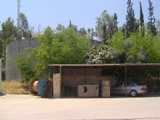
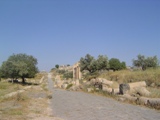
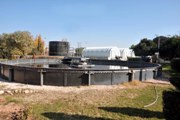
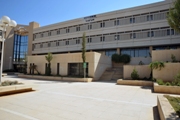
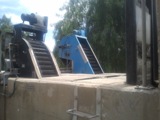
Below is a list of the preliminary course topics and learning
goals. Learning goal emphasis will be adjusted to match the
presentation topics and field trips. A primary aim is to
focus the course on the technological aspects of the topics while
including appropriate information on policy or societal
information as necessary to help develop understanding as to how
these influence technological decisions. Your suggestions on
this approach are welcome and appreciated.
Preliminary Topic List
and Learning Goals
Topic 1: Overview of the engineered
water cycle and integrated water management
This topic covers the integrated management of water from source,
through drinking water treatment, through wastewater collection
and treatment,and finally to reclaimed wastewater as a new source.
Field trips will include a visit to the Dead Sea as a
visible sign of declining water resources.
Learning
goals:
- sketch the engineered water
cycle in Jordan
- identify two challenges
associated with the water cycle in Jordan
- define three strategies
that Jordan is applying to extend the water cycle
- describe how the Dead Sea
demonstrates the declining regional water resources
Topic 2: Water Sources in Jordan
This topic provides a survey of the types of water sources
available in Jordan, and covers how water resource management can be
used to extend and protect water supplies. A field trip to a natural
areas (e.g. Azraq Wetlands) is planned to give students a first-hand
view of Jordanian water resources.
Learning
goals:
- List the major water sources for Jordan
- Identify the major considerations for each source
- Describe at least one water source based on personal
experience (i.e. impressions from the field trip)
Topic 3: Drinking
Water Treatment of Arid Source Waters
This topic will provide an overview of the drinking water
treatment with an emphasis on how water source quality impacts the
treatment process and the end product quality, including treatment
of brackish water. Field trips will include visits to water
treatment plants and a desalination plant.
Learning
goals:
- Sketch the process treatment train for each of the plants
that were visited
- List the major constituents that need to be removed from
source water prior to distribution
- Describe the constituents in arid source water differ from
other regions
- Define desalination and how it works
- Discuss the life cycle of two water-bourne pathogens
- Describe how the water distribution system can impact water
quality
Topic 4: Wastewater Treatment in
Low-water use Regions
This topic will contrast
technologies appropriate for dry-climate and wet-climate
wastewater treatment, with an emphasis on secondary treatment
processes. Field trips will include visits to wastewater
treatment plants including the treatment facility at JUST.
Learning
goals:
- Contrast the wastewater
characteristics in Jordan with those found in water-rich
regions
- Define Primary, Secondary,
and Tertiary Wastewater treatment and list the goals of each
- Describe anaerobic
digestion including the source materials, basics workings, and
by-products
- Contrast three types of
secondary treatment including appropriate applications;
identify those that would be most appropriate in water-scarce
regions
Topic 5: Wastewater Reclaimation and
Reuse
This topic will provide an
overview of the challenges and benefits of wastewater reuse.
Both technological challenges and public perceptions will be
covered. Field trips will include the JUST water reuse
demonstration project.
Learning goals:
- List three risks assoicated
with wastewater reuse
- List three ways that
wastewater can be reused, and identify appropriate treatment
technologies for each
- Discuss restrictions placed
on wastewater reuse, and how these are used to minimize risk
Topic 6: The Decentralized and Rural
Experience
This topics considers the water
cycle and water treatment in areas not served by centralized
treatment. Field trips will include a visit to a septage
treatment facility.
Learning
goals:
- List the water sources and
treatment options for rural Jordan
- Contrast a cesspool, a
septic system, and a pit toilet
- Describe differences
between sewage and septage
- Define an alternatice
decentralized treatment option
Topic 7: Ancient Wastewater Engineering
This topic will provide an
historical context of modern water engineering, with an emphasis
on archeological evidence for planned water systems and of the
importance of these systems to the survival of ancient
civilizations. Field trips will include Petra and Jaresh, with an
optional trip to Gadara.
Learning goals:
- Identify two strategies for
water collection and storage in ancient civilizations
- Contrast modern water
collection and distribution with ancient practises
- Discuss how water was
critical to the survival of ancient civilizations, and
contrast this to the modern experience
At the University of Washington: Dr. Heidi Gough hgough uw.edu
uw.edu
At the Jordan University of Science and Technology: Dr.
Muna Abu-Dalo maabudalo@just.edu.jo










 uw.edu
uw.edu